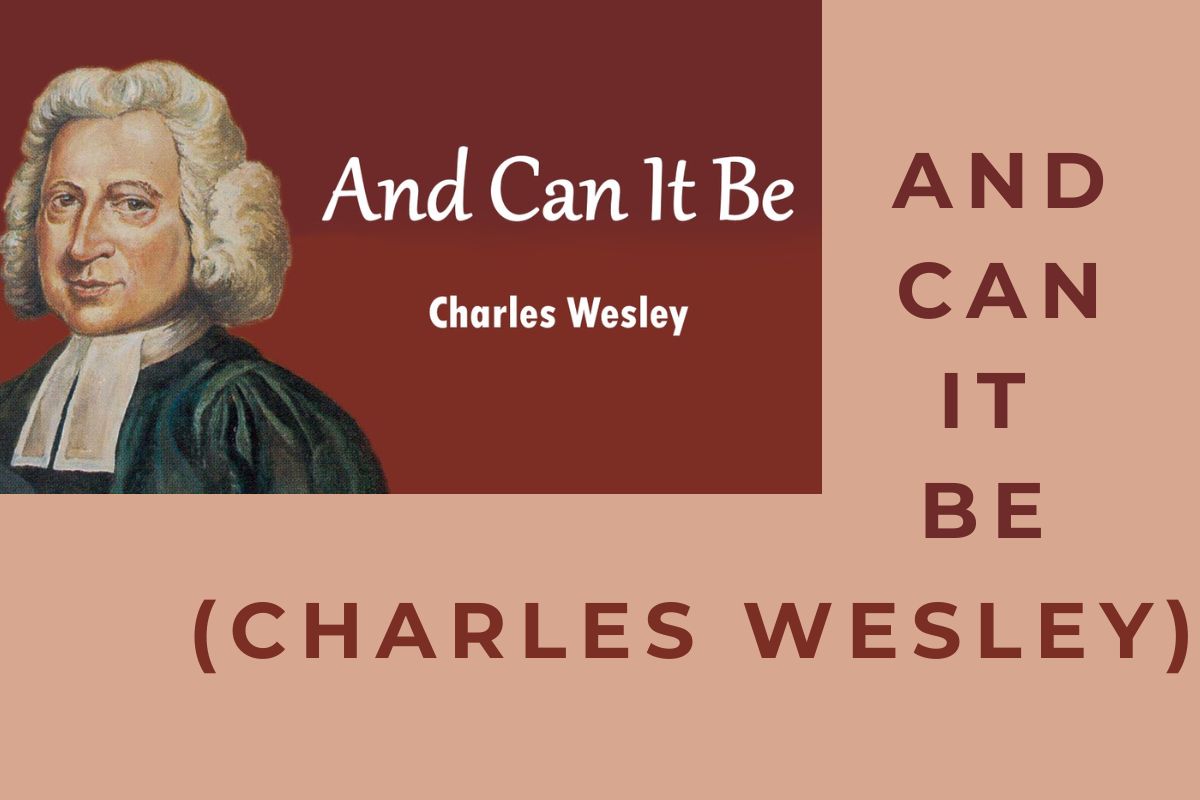
And can it be (Charles Wesley) – Lyrics
And Can It Be” is a beloved hymn, that was written by Charles Wesley in 1738, written after his Christianity conversion. This powerful and moving hymn is celebrated for its profound theological insights and emotional depth. It reflects Wesley’s amazement at the grace and love of God, particularly the mystery of Christ’s sacrifice and the believer’s salvation. The hymn’s lyrics are a blend of personal testimony and doctrinal truth, expressing awe at the freedom and new life found in Christ. Set to the majestic tune “Sagina,” the hymn is a staple in many Christian worship services, cherished for its uplifting melody and its celebration of the transformative power of God’s grace.
And can it be (Charles Wesley) – Lyrics
1) And can it be that I should gain
An interest in the Savior’s blood?
Died He for me, who caused His pain?
For me, who Him to death pursued?
Amazing love! how can it be
That Thou, my God, should die for me?Refrain:
Amazing love! how can it be
That Thou, my God, should die for me!
2) ‘Tis mystery all! The Immortal dies!
Who can explore His strange design?
In vain the firstborn seraph tries
To sound the depths of love divine!
‘Tis mercy all! let earth adore,
Let angel minds inquire no more. [Refrain]
3) He left His Father’s throne above,
So free, so infinite His grace;
Emptied Himself of all but love,
And bled for Adam’s helpless race;
‘Tis mercy all, immense and free;
For, O my God, it found out me. [Refrain]
4) Long my imprisoned spirit lay
Fast bound in sin and nature’s night;
Thine eye diffused a quick’ning ray,
I woke, the dungeon flamed with light;
My chains fell off, my heart was free;
I rose, went forth and followed Thee. [Refrain]
5 )No condemnation now I dread;
Jesus, and all in Him is mine!
Alive in Him, my living Head,
And clothed in righteousness divine,
Bold I approach threternal throne,
And claim the crown, through Christ my own. [Refrain]
Amen.
And can it be (Charles Wesley)
“And Can It Be” by Charles Wesley is a profound hymn that captures the awe and wonder of a believer’s salvation through Jesus Christ. Written in 1738 shortly after Wesley’s conversion, the hymn reflects his deep personal experience of God’s grace and mercy.
The hymn begins with a sense of astonishment that God would extend His grace and love to humanity. Wesley marvels at the divine compassion that led Christ to die for sinners.
The lyrics focus on the sacrificial love of Jesus, who left His heavenly throne to suffer and die for the redemption of humankind. Wesley emphasizes the cost of this sacrifice and its significance for believers.
The hymn conveys a strong assurance of salvation and the believer’s secure position in Christ. Wesley celebrates the newfound freedom and boldness to approach God with confidence.
The final verses of the hymn express joy in the promise of eternal life with Christ. Wesley looks forward to the believer’s future in heaven, united with God forever.
Musical and Lyrical Structure
The hymn is set to the tune “Sagina,” composed by Thomas Campbell, which complements the majestic and triumphant tone of the lyrics. The melody enhances the emotional and theological depth of the hymn, making it a powerful piece for congregational singing.
And can it be (Charles Wesley) – Meaning
Wesley meditates on the mystery and depth of Christ’s sacrifice, emphasizing the incredible truth that Jesus, who is divine, would die for humanity. Highlight the paradox of Christ’s sacrificial love for those who contributed to His suffering.
Personal Transformation and Liberation
The hymn describes the believer’s experience of spiritual awakening and liberation from sin. Wesley uses vivid imagery, such as “My chains fell off, my heart was free,” to convey the profound impact of Christ’s redemptive work on the individual soul.
Assurance of Salvation
Throughout the hymn, there is a strong sense of assurance and confidence in the believer’s salvation.
Eternal Life and Union with Christ
The final verses look forward to the believer’s eternal life with Christ. Wesley expresses the joy and hope of eternal union with God, reflecting the ultimate promise of the Christian faith.
Overall Message
Charles Wesley invites believers to meditate on the mystery of God’s grace, the sacrificial love of Jesus, and the transformative power of salvation. The hymn’s message is one of awe, gratitude, and assurance, encouraging worshipers to marvel at the depth of God’s love and to rejoice in the freedom and hope found in Christ. Its enduring popularity is a testament to its ability to resonate deeply with the spiritual experiences and beliefs of Christians across generations.




